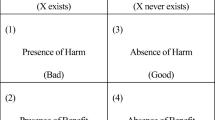Abstract
In this paper, I examine Oakeshott's account of civility by drawing on the porcupine metaphor that Oakeshott borrows from Schopenhauer. I explain why Oakeshott thinks that civility is best understood as a moral practice, one which has a special significance for politics. I outline the conceptual differences between civility understood as a small virtue and as an attribute of the civil condition. Three major difficulties in Oakeshott's treatment are raised. The first concerns his view that ‘civil’ is an adverbial qualifier; the second concerns the relation between civility in its moral and its political senses, and the third is about the relation between civility and justice. While recognizing what is distinctive about Oakeshott's account, I indicate reservations about his discussion through a series of comparisons with Schopenhauer, and I conclude that, on their own terms, neither philosopher is able to solve the problem the porcupines set for them.
Similar content being viewed by others
References
Ademi, G. (1993) ‘Legal intimations: Michael Oakeshott and the rule of law’, Wisconsin Law Journal 3: 839–896.
Aristotle (1988) in Stephen Everson (ed.) The Politics, Cambridge: Cambridge University Press.
Auspitz, J.L. (1976) ‘Individuality, civility and theory: the philosophical imagination of Michael Oakeshott’, Political Theory 4: 261–294.
Berki, R.N. (1981) ‘Oakeshott's concept of civil association: notes for a critical analysis’, Political Studies 24: 570–585.
Boucher, D. (2001) ‘The idealism of Michael Oakeshott’, Collingwood and British Idealism Studies 8: 73–98.
Collingwood, R.G. (1942) The New Leviathan, Oxford: Clarendon Press.
Covell, C. (1978) ‘Practices and persons: Strawson and Oakeshott’, The Cambridge Review 2 June: 165–173.
Franco, P. (1990) The Political Philosophy of Michael Oakeshott, New Haven and London: Yale University Press.
Friedman, R.B. (1989) ‘Oakeshott on the authority of law’, Ratio Juris 2: 27–40.
Gerencser, S.A. (2000) The Sceptic's Oakeshott, London: Macmillan.
Gilbert, W.S. (1952) The Savoy Operas, London: Macmillan.
Johnson, P. (1998a) ‘Hobbes on human nature and the necessity of manners’, Angelaki 3 (1): 67–76.
Johnson, P. (1998b) ‘Hume on manners and the civil condition’, British Journal for the History of Philosophy 6 (2): 209–222.
Johnson, P. (1998c) RG Collingwood: An Introduction, Bristol: Thoemmes Press.
Johnson, P. (1999) The Philosophy of Manners: A Study of the Little Virtues, Bristol: Thoemmes Press.
Kant, I. (1930) Lectures on Ethics, London: Methuen (translated by Louis Infield, with an Introduction by J Macmurray).
Letwin, S.R. (1974) ‘Morality and law’, Encounter 43: 37–49.
Letwin, S.R. (1989) ‘Morality and law’, Ratio Juris 2: 27–41.
McIntyre, K.B. (1996) ‘Collingwood, Oakeshott and the social contract’, Collingwood Studies 3: 117–136.
McIntyre, K.B. (2004) The Limits of Political Theory, Oakeshott's Philosophy of Civil Association, Exeter: Imprint Academic.
Nardin, T. (2001) The Philosophy of Michael Oakeshott, Pennsylvania: Penn State Press.
Oakeshott, M. (1975) On Human Conduct, Oxford: Clarendon Press.
Oakeshott, M. (1983) ‘The Rule of Law’, in On History and other Essays, Oxford: Basil Blackwell, pp. 119–165.
Oakeshott, M. (1991) Rationalism in Politics and other Essays, New and Expanded edition, with a Foreword by Timothy Fuller, Indianapolis: Liberty Press.
Oakeshott, M. (2004) in Luke O'Sullivan (ed.) What is History? and other essays, Exeter: Imprint Academic.
O'Sullivan, L. (2003) Oakeshott on History, Exeter: Imprint Academic.
Podoksik, E. (2003) In Defence of Modernity, Vision and Philosophy in Michael Oakeshott, Exeter: Imprint Academic.
Schopenhauer, A. (1974) Parerga and Paraliponema, Short Philosophical Essays, Volumes 1 and 2, translated by E F J Payne, Oxford: Clarendon Press.
Slote, M. (1983) Goods and Virtues, Oxford: Clarendon Press.
Swaine, L. (2005) ‘Political theory and the conduct of faith: Oakeshott on religion in public life’, Contemporary Political Theory 4 (1): 63–82.
Tseng, R. (2003) The Sceptical Idealist, Michael Oakeshott as a Critic of the Enlightenment, Exeter: Imprint Academic.
Author information
Authors and Affiliations
Rights and permissions
About this article
Cite this article
Johnson, P. Oakeshott's Porcupines: Oakeshott on Civility. Contemp Polit Theory 6, 312–329 (2007). https://doi.org/10.1057/palgrave.cpt.9300274
Received:
Accepted:
Published:
Issue Date:
DOI: https://doi.org/10.1057/palgrave.cpt.9300274




